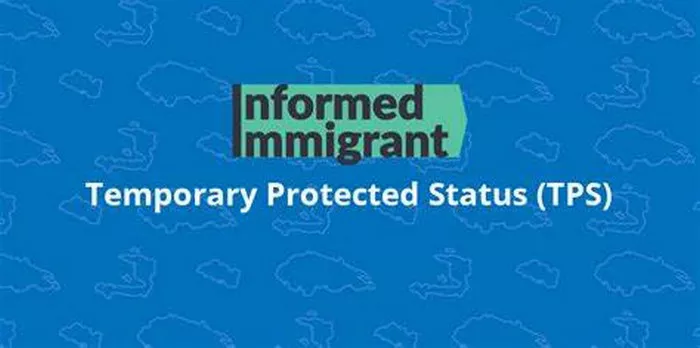Temporary Protected Status (TPS) immigration is a critical component of the United States’ immigration system, providing temporary relief to individuals from designated countries facing ongoing armed conflict, environmental disasters, or other extraordinary and temporary conditions. Established by the Immigration Act of 1990, TPS allows eligible individuals to remain in the United States and obtain work authorization until conditions in their home countries improve, enabling them to live and work legally in the U.S. without fear of deportation. In this article, we delve into the intricacies of TPS immigration, exploring its history, eligibility criteria, benefits, challenges, and the broader implications for immigration policy in the United States.
Historical Background of TPS Immigration
The concept of providing temporary refuge to individuals fleeing dangerous conditions in their home countries has roots in international humanitarian law. TPS, as it exists in the United States, emerged as a response to the complex humanitarian crises affecting various regions worldwide. The U.S. Congress established TPS through the Immigration Act of 1990, recognizing the need to offer protection to individuals who may not qualify for asylum but are unable to return to their home countries safely.
Initially, TPS was intended as a temporary solution, allowing individuals to remain in the United States until conditions in their home countries improved. However, in practice, many TPS designations have been extended repeatedly due to ongoing instability or environmental challenges, effectively providing long-term relief to TPS beneficiaries.
Eligibility Criteria for TPS
To qualify for TPS, individuals must meet specific eligibility criteria established by the U.S. Citizenship and Immigration Services (USCIS). Key requirements include:
Country Designation: TPS is only available to nationals of countries designated by the U.S. government for TPS status due to ongoing armed conflict, environmental disasters, or other extraordinary conditions.
Continuous Physical Presence: Applicants must demonstrate continuous physical presence in the United States since the effective date of the TPS designation for their country.
No Criminal Convictions: Individuals with certain criminal convictions are ineligible for TPS.
Admissibility: Applicants must be admissible to the United States or eligible for a waiver of inadmissibility.
Registration Period: Applicants must register for TPS during the specified registration period designated by USCIS.
Meeting these criteria is essential for individuals seeking protection under TPS, and failure to satisfy any of these requirements may result in denial of TPS benefits.
Benefits of TPS
Temporary Protected Status offers several benefits to eligible individuals, including:
Protection from Deportation: TPS beneficiaries are shielded from deportation and cannot be removed from the United States based solely on their immigration status.
Work Authorization: TPS recipients are eligible to obtain employment authorization documents (EADs), allowing them to work legally in the United States during the designated TPS period.
Travel Authorization: TPS beneficiaries may be granted travel authorization to travel outside the United States under limited circumstances with advance permission from USCIS.
Access to Certain Social Services: While TPS does not provide a pathway to permanent residency or citizenship, beneficiaries may be eligible for certain social services and benefits, depending on state and local policies.
These benefits provide crucial support to TPS recipients, allowing them to rebuild their lives and contribute to their communities while navigating the challenges of displacement and uncertainty.
Challenges and Criticisms
Despite its intended humanitarian purpose, TPS has faced criticism and encountered various challenges:
Uncertainty and Instability: The temporary nature of TPS status often leads to uncertainty and instability for beneficiaries, who may face challenges in planning for their futures due to the periodic reevaluations of TPS designations.
Lack of Permanent Solution: TPS does not offer a pathway to permanent residency or citizenship, leaving beneficiaries in a state of limbo with limited options for long-term stability.
Political Controversy: TPS has become a contentious issue in U.S. politics, with debates over its continuation, termination, or extension driven by shifting political dynamics and agendas.
Limited Scope and Coverage: TPS is only available to nationals of countries with designated TPS status, leaving individuals from other countries facing similar crises without access to the same protections.
Addressing these challenges requires a comprehensive approach that considers the broader context of immigration policy, humanitarian concerns, and geopolitical realities.
Implications for Immigration Policy
The evolution of TPS immigration reflects broader debates and policy decisions surrounding immigration in the United States. As policymakers grapple with immigration reform, TPS serves as a microcosm of larger issues, including:
Humanitarian Considerations: TPS highlights the importance of humanitarian protection for vulnerable populations and the need for responsive and flexible immigration policies that prioritize human rights and dignity.
Legal Framework and Due Process: The administration of TPS underscores the significance of clear legal frameworks, due process protections, and mechanisms for review and oversight in immigration decision-making.
Global Responsibility and Solidarity: TPS emphasizes the interconnectedness of global events and the shared responsibility of nations to address humanitarian crises and support those in need.
Pathways to Legalization and Citizenship: The debate over TPS intersects with discussions about pathways to legalization and citizenship for undocumented immigrants, raising questions about fairness, equity, and inclusion in U.S. immigration policy.
Ultimately, the future of TPS immigration hinges on policymakers’ willingness to confront these complex issues, balance competing interests, and chart a course that upholds American values of compassion, fairness, and opportunity for all.
Conclusion
Temporary Protected Status (TPS) immigration plays a vital role in the United States’ immigration system, offering temporary relief to individuals from designated countries facing ongoing crises. While TPS provides crucial protections and benefits to eligible individuals, it also faces challenges and criticisms that underscore the complexities of immigration policy. As policymakers navigate debates over immigration reform, TPS serves as a poignant reminder of the humanitarian imperatives, legal considerations, and global responsibilities at stake. By addressing the challenges of TPS and embracing its potential as a tool for humanitarian protection and solidarity, the United States can uphold its values and commitments in an ever-changing world.


